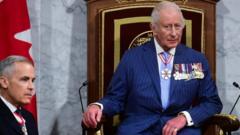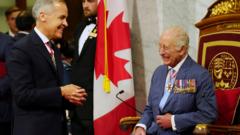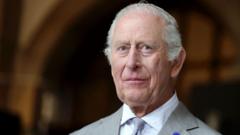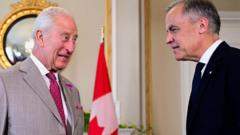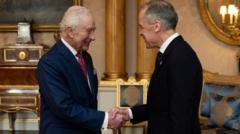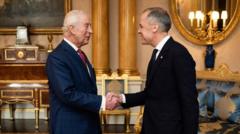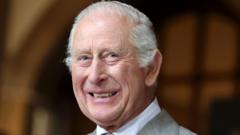A plea for the welfare of ostriches facing culling in British Columbia has found support from prominent U.S. figures, igniting a debate over wildlife management amid the avian flu crisis.
Canada's Controversial Ostrich Culling Sparks U.S. Support to Save Them

Canada's Controversial Ostrich Culling Sparks U.S. Support to Save Them
Calls from U.S. officials including Robert F. Kennedy Jr. and Dr. Mehmet Oz to save ostriches from the avian flu massacre gain traction.
Canada has ordered the culling of around 400 ostriches at Universal Ostrich Farms in Edgewood, British Columbia, due to concerns about avian flu. While Canadian officials deem this necessary to contain the virus, the decision has been met with mixed reactions, causing a rift among animal rights advocates and health experts alike. Prominent voices urging for the animals' protection and further study include U.S. Health Secretary Robert F. Kennedy Jr. and renowned celebrity doctor Mehmet Oz.
Kennedy has reached out to the Canadian Food Inspection Agency, highlighting the potential for valuable scientific insights by observing the ostriches in a controlled environment rather than executing them. His call for additional testing reflects a growing sentiment that emphasizes scientific inquiry and animal welfare over immediate culling. “We believe that significant scientific knowledge may be garnered from following the ostriches in a controlled environment,” Kennedy stated, pleading for a more humane response.
The situation has captured the attention of animal lovers across North America, with protests and social media campaigns emerging to advocate for the ostriches’ lives. These birds, sometimes described as a "wobble," have garnered unexpected allies, potentially influencing policy reform related to wildlife management as well as infectious diseases strategies. The debate continues as the fate of these ostriches hangs in the balance, pitting urgent health measures against ethical considerations.
Kennedy has reached out to the Canadian Food Inspection Agency, highlighting the potential for valuable scientific insights by observing the ostriches in a controlled environment rather than executing them. His call for additional testing reflects a growing sentiment that emphasizes scientific inquiry and animal welfare over immediate culling. “We believe that significant scientific knowledge may be garnered from following the ostriches in a controlled environment,” Kennedy stated, pleading for a more humane response.
The situation has captured the attention of animal lovers across North America, with protests and social media campaigns emerging to advocate for the ostriches’ lives. These birds, sometimes described as a "wobble," have garnered unexpected allies, potentially influencing policy reform related to wildlife management as well as infectious diseases strategies. The debate continues as the fate of these ostriches hangs in the balance, pitting urgent health measures against ethical considerations.







